Jonah Raskin: Tireless Bay Area peace activist, prolific writer, and educator
Jonah Raskin was 10 in 1952, during the height of the anti-communist fervor of the Cold War. His father was an attorney, among the vast intellectual class swept up in McCarthyism, the campaign to expose suspected Soviet sympathizers.
Raskin’s father was never accused. Still, Raskin only learned much later the extent of his parents’ communist sympathies. It made clear to him why, while traveling on family vacations, his father had admonished: “At home and on the road, we’re the Raskins but when we’re at White Lake Lodge, we’re the Samuels.”
Professionals in law, government, academia, journalism, the entertainment industry and more had been interrogated in televised congressional that spawned a national hysteria. The result was blacklists, ruined careers – and even suicides.
That experience subtly drove Raskin, now 82, toward progressive politics, he states in his autobiography, “Out of the Whale: Growing up in the American Left:” “It was a secret. It was hidden, but at the same time it was alive inside me.”
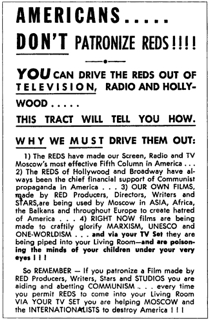
Through 18 books and numerous newspaper and magazine articles, Raskin has been the voice for exiles, fugitives, misfits, and the forgotten, each with a different story of social, racial or political injustice.
His leftward tilt started at 14 when he read in Life Magazine about the obscenity trial of counterculture Allen Ginsburg’s 1956 poem “Howl.” It was a rage against conformity, inhibition, censorship, and puritanism. Now considered one of the greats of American literature and associated with the Beat Generation of writers, like Jack Kerouac, it was soon ruled not obscene.
“I knew I had to read the poem. Bought the book, showed it to my friends, became a beatnik — black turtleneck; played jazz on the flute, hung out in Greenwich Village,” said Raskin. “Eventually went to Columbia where Ginsberg and (Jack) Kerouac went to school. Like Kerouac, I played football and wrote poetry — two different worlds. I belonged to both.”
“American Scream,” Raskin’s narrative on Ginsberg and the making of the Beat Generation, was one of the San Francisco Chronicle’s Best Books of 2004.
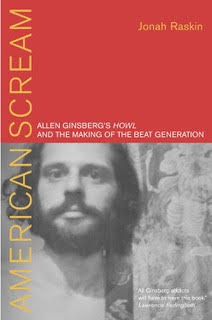
Since the 1960s, Raskin has published books on imperialism, the Weather Underground, revolutionary struggles in Puerto Rico, radical activist Abbie Hoffman, and the U.S. war on marijuana. He has written on American literature and its writers, including Jack London. He has produced books of poetry – “The Thief of Yellow Roses” came out last year – as well as mysteries.
He has written about, interviewed and known such luminaries as Eldridge Cleaver, Timothy Leary, Jerry Rubin, Doris Lessing, Kurt Vonnegut, Tillie Olsen, Alice Walker and many others. His work has appeared in the Los Angeles Times, the San Francisco Chronicle, the Village Voice, the Santa Rosa Press Democrat, the San Francisco Bay Guardian, and other publications and newspapers.
He calls himself an “internationalist,” having lived in England, Belgium, France, Italy, Algiers, Vietnam, and Mexico while writing, and a pacifist.
An advocate for peace
“The dominant fact of my life is that the USA has been at war almost the whole time or preparing for war,” he said. “I hope that by looking at the past we can see the cycles of our lives, the repeated patterns, and can escape from them into something new and different.”
His advice in this heated political season: “Avoid violence. Be visible. Talk openly. Go out and meet people. Organize. Educate. Democracy is in the streets, on the Internet, and wherever people meet.”
Raskin, who followed his parents from New York to Sonoma, California, in the ‘80s, moved to the Outer Sunset four years ago. He wanted to be closer to his brothers and other family.
He grew up in a two-story home with a library in Huntington, on the north shore of New York’s Long Island. He was an avid reader – of Dostoevsky and other books of great literature and history.
“My mother was as a high school cooking teacher, and an artist and poet. My father was a guide, teacher, lawyer, and a thinker who encouraged me to read, write, and become politically active,” Raskin said. ”Also, he taught me about farming and gardening.”
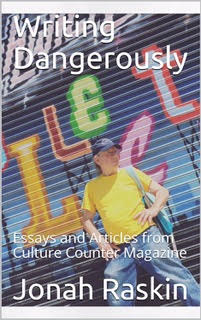
After graduating from Columbia University and before entering the University of Manchester in England, where he earned his doctorate in history and literature, he taught English and American Literature at the historically black Winston-Salem State College in North Carolina. Advised to teach sentence structure, participles, and gerunds, he instead had students read Richard Wright and James Baldwin and talked about the naturalist and essayist Henry David Thoreau and Martin Luther King and the civil rights struggle.
“In 1964, lynchings were still going on; I think the students knew more than I did,” he said. “I found it difficult to find black writers in the anthologies.”
In 1969, he did more than write about political upheavals; he took part. As a 27-year-old professor at Stony Brook University in New York, Raskin marched against the Vietnam War, damaging property along the way. He was charged with felonious assault, rioting, and incitement to riot. Eventually, he was freed on $30,000 bail.
By this time, heeding his colleagues’ advice to “publish or perish,” he wrote and got five books published over the next 10 years. But because of his activism, Raskin lost his opportunity for tenure as well as his position at Stony Brook.
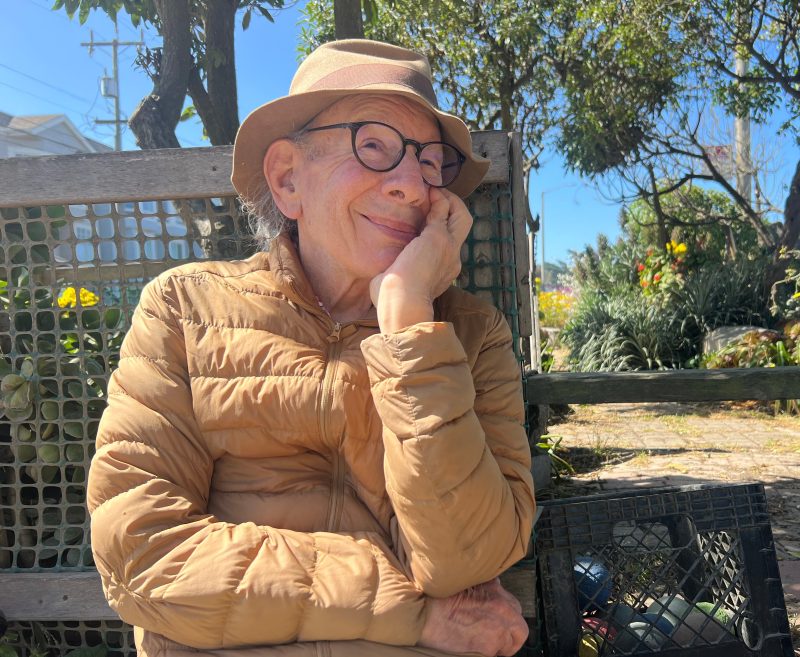
He got divorced and became a freelance journalist, writing for such radical publications as Culture Counter and High Times, a pro-marijuana magazine. He later married again, gaining two stepsons but divorced again.
In 1981, working semester by semester at Sonoma State University, he taught literature and composition while producing book reviews for the San Francisco Chronicle and the Santa Rosa Press Democrat.
Raskin as educator
By the end of 1989, he had a full career at Sonoma State as a professor, teaching curricula in media law, the history of communications, film noir and memoir writing, and writing for newspapers, magazines, radio, and film. He later became the chairman of the Communication Studies Department and retired in 2011.
Raskin said he loved teaching students who were on internships and learning media communications from a hands-on perspective. He collaborated with each student’s employer to monitor their progress. “Most students landed good jobs after their graduation.”
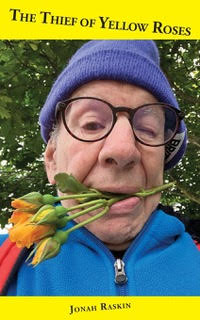
During this time, he also hosted the weekly KRCB radio program “Walks of Life,” interviewing such unsung county citizens as growers, performers, poets, writers, and artists.
Today, he’s the non-fiction editor for “Caveat Lector,” an online magazine dedicated to literature, social and cultural criticism, philosophy and the arts. He recently taught memoir writing to seniors at the San Francisco Village and is currently co-teaching a seniors’ poetry writing class at the Mechanics Institute and Library.
“It will go on as long as we want and need it to go on,” he said. “I love it.”
He also loves going to the movies, watching sports on TV, meditating, chanting, and yoga. He still writes poetry about “whatever is going on that day.” He’s working on his memoir – and growing potatoes, and lots of lavender.


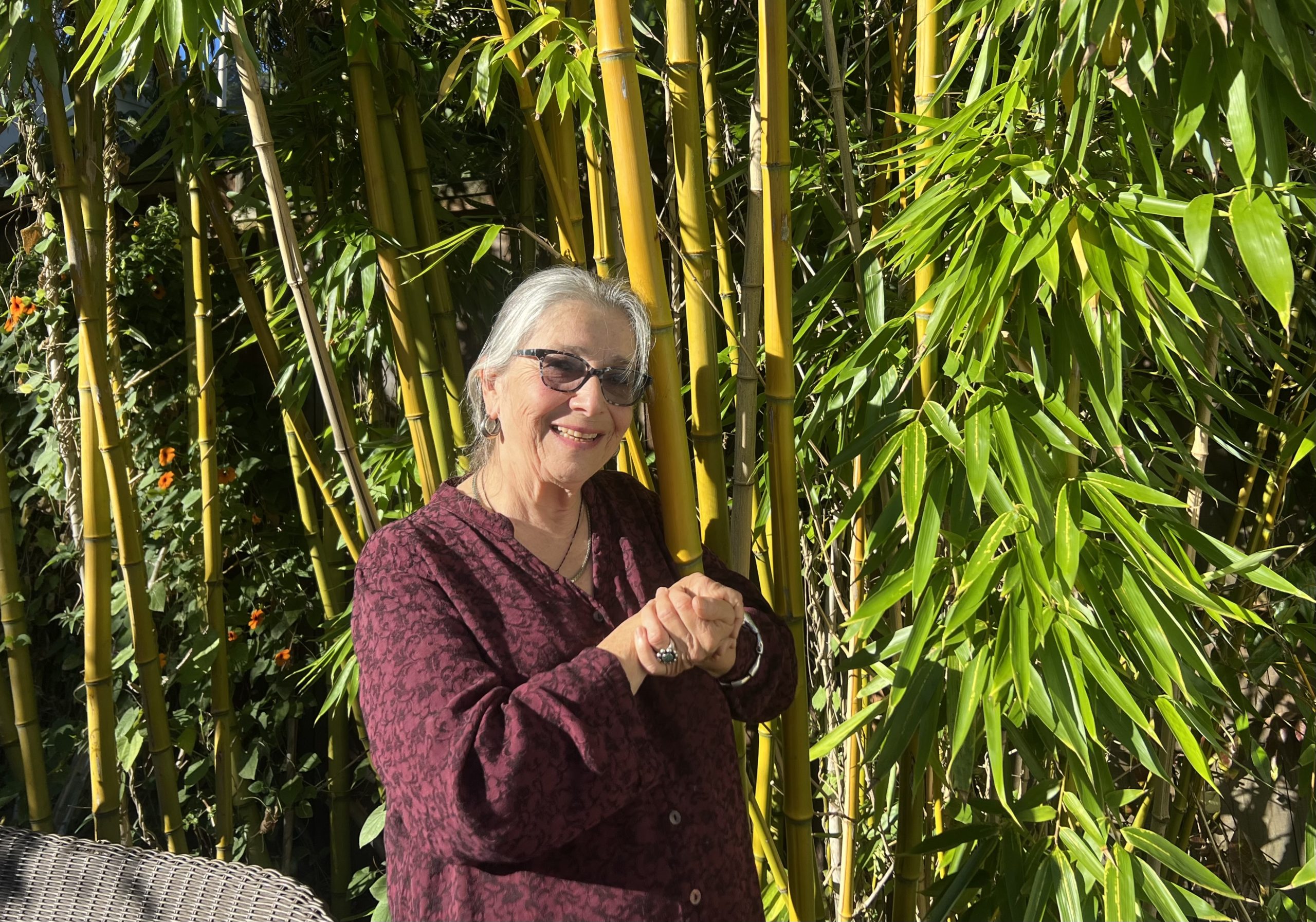
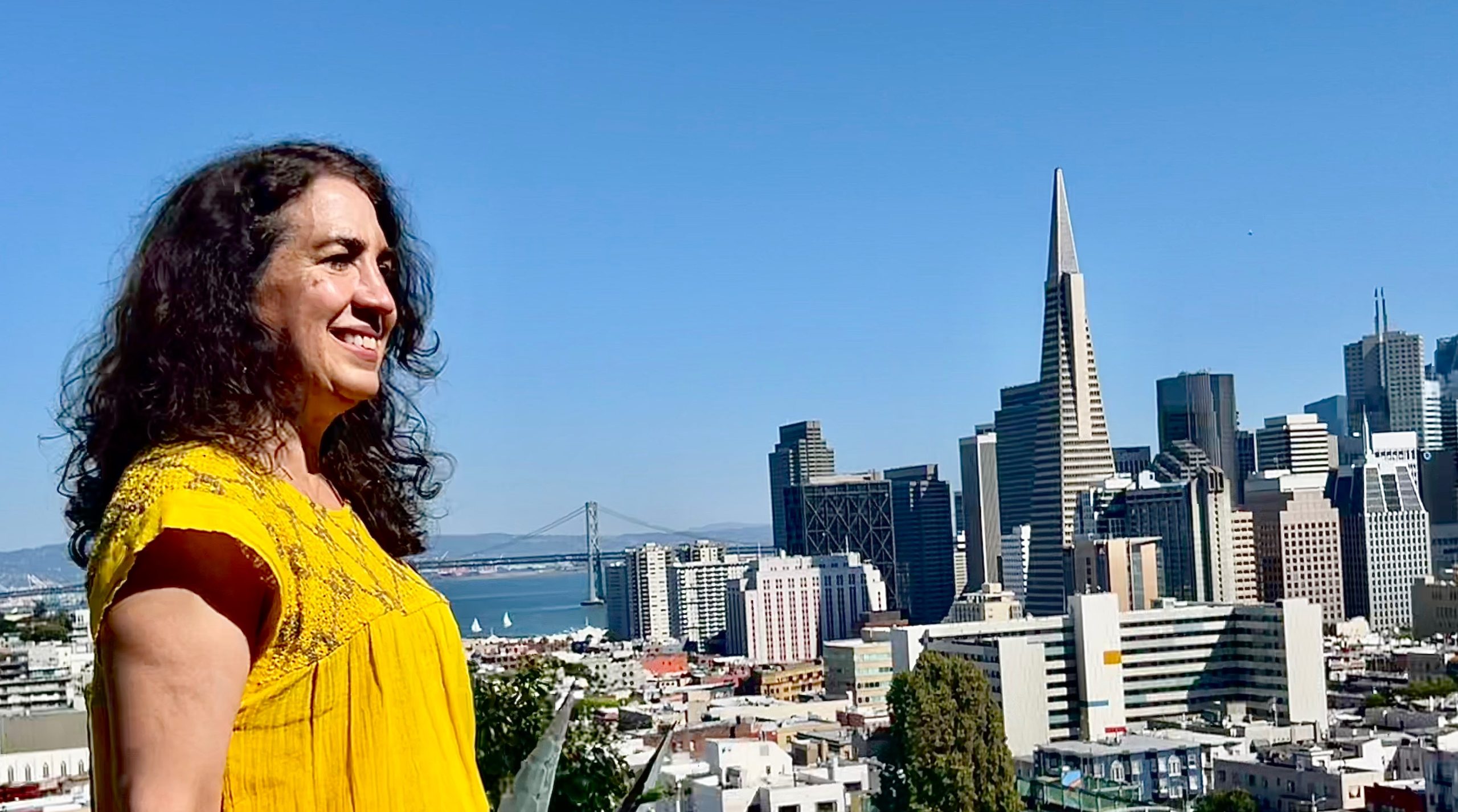
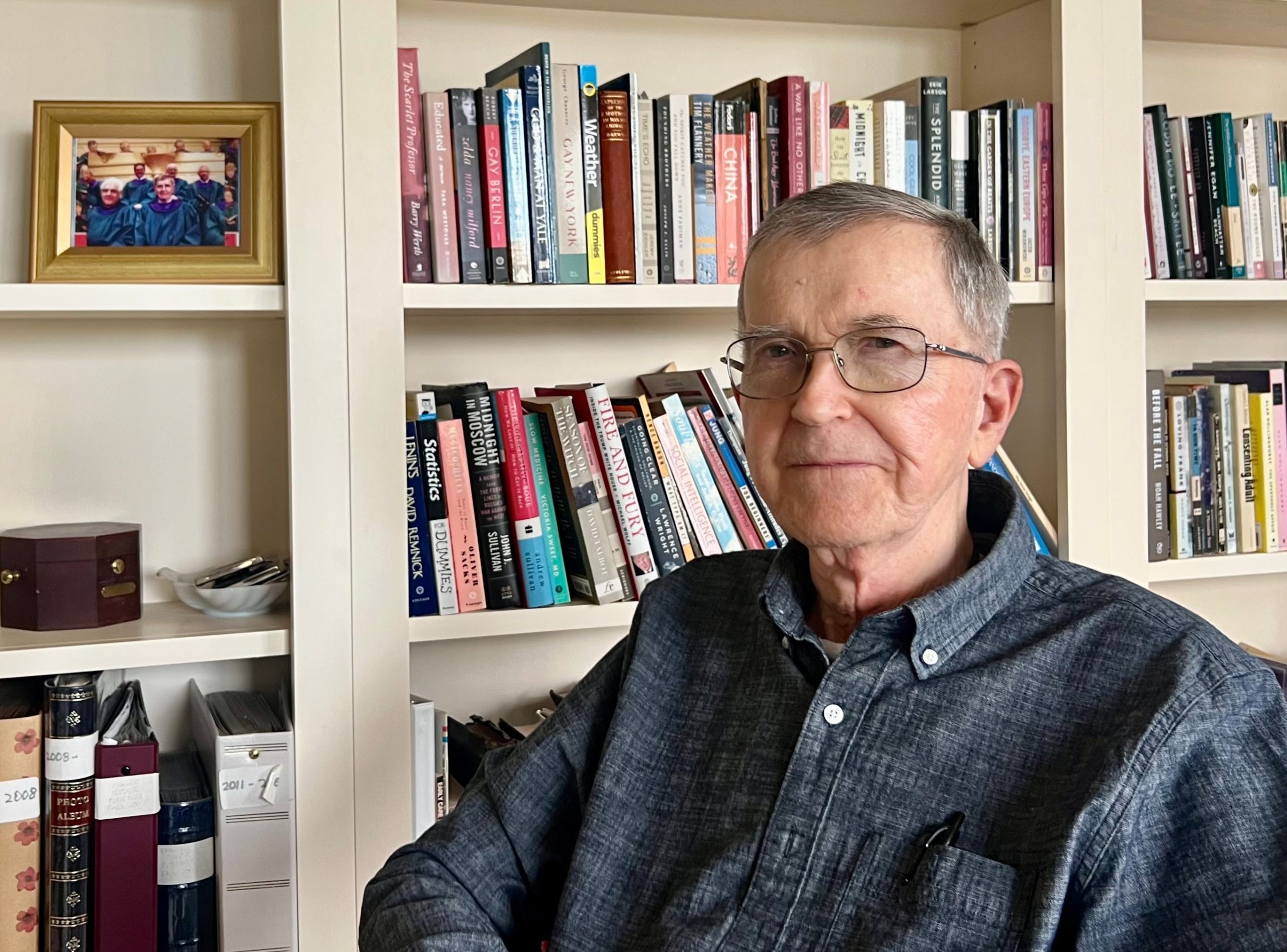

Craig Carrozzi
Interesting that Raskin was influenced by purchasing and reading "Howl", which of course was published by City Lights Bookstore, an entity which led the fight against censorship and freedom of speech in the 1950s. Fast forward to the period of Covid lockdowns, and City Lights bookstore refused to order a copy of "The Real Anthony Fauci" by Robert F. Kennedy Junior for me. No explanation given. I guess they pick and choose what they now consider freedom of speech. How the mighty have fallen.